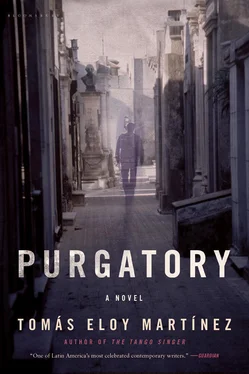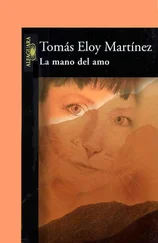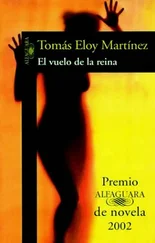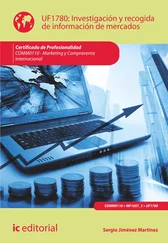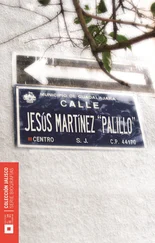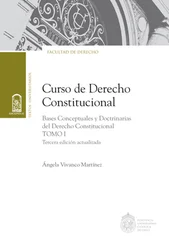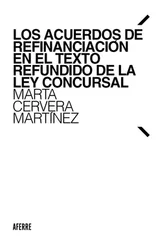Tomás Eloy Martínez - Purgatory
Здесь есть возможность читать онлайн «Tomás Eloy Martínez - Purgatory» весь текст электронной книги совершенно бесплатно (целиком полную версию без сокращений). В некоторых случаях можно слушать аудио, скачать через торрент в формате fb2 и присутствует краткое содержание. Год выпуска: 2008, Издательство: Publishing PLC, Жанр: Современная проза, на английском языке. Описание произведения, (предисловие) а так же отзывы посетителей доступны на портале библиотеки ЛибКат.
- Название:Purgatory
- Автор:
- Издательство:Publishing PLC
- Жанр:
- Год:2008
- ISBN:нет данных
- Рейтинг книги:5 / 5. Голосов: 1
-
Избранное:Добавить в избранное
- Отзывы:
-
Ваша оценка:
- 100
- 1
- 2
- 3
- 4
- 5
Purgatory: краткое содержание, описание и аннотация
Предлагаем к чтению аннотацию, описание, краткое содержание или предисловие (зависит от того, что написал сам автор книги «Purgatory»). Если вы не нашли необходимую информацию о книге — напишите в комментариях, мы постараемся отыскать её.
"Purgatory" narrates the anxiety of the love lost and then found in a magnificent reconstruction of the sinister events that went down in the time of the regime in Argentina.
Purgatory — читать онлайн бесплатно полную книгу (весь текст) целиком
Ниже представлен текст книги, разбитый по страницам. Система сохранения места последней прочитанной страницы, позволяет с удобством читать онлайн бесплатно книгу «Purgatory», без необходимости каждый раз заново искать на чём Вы остановились. Поставьте закладку, и сможете в любой момент перейти на страницу, на которой закончили чтение.
Интервал:
Закладка:
Emilia was due to map the Pasaje de las Garantías too, and went to see it. It was desolate, empty, grey as the surface of the moon and filled with craters. Maybe the motorway had scared the neighbours away. This was one of the few areas where work had been finished. At either end rose two prefabricated houses surrounded by dying gardens. One was little more than a cave which still stood in spite of the louring concrete pillars. Behind, beneath the sweeping cement curves, in a fantasy version of an old glasshouse, a few stubborn plants continued to compete for their share of oxygen and moisture under metal panels already beginning to rust. She thought she could see the glitter of freesias struggling up through the weeds. She bought a bunch of flowers from a stall on the avenue nearby. She felt a desperate desire to see her mother smile, for some small flame of happiness to spark in her life, a desire for Simón to suddenly descend from an alien sky, for people to dance on the pavements, for anything that would make her grief go away.
After Chela’s wedding, Ethel spent a brief period in the family mansion on calle Arenales. Emilia shut herself up in the bedroom with her, soothed her with Schubert quartets and waltzes from the distant past when she had been courting; she changed her nightdress, put perfume on her, and at dusk she walked with her through the darkened corridors. She was just the same, or perhaps not, but the differences were imperceptible. She stared at her daughter with the same incomprehension, addressed her formally, called her by the names of friends now dead, muttered unintelligible words. When her daughter hugged her, the muscles beneath her fragile skin tensed as though she were a frightened tortoise. It seemed as if nothing mattered to her, as they stepped outside into the sunshine to take her back to the home.
Emilia paid the heavy price that Dupuy had demanded. She lived now in the family home as in another tomb, waiting for her mother’s next visit: these fleeting bursts of happiness were her reward, her consolation. Leaving the apartment in San Telmo vacant was a waste, so she rented it for short-term lets to tourists. She left the furniture there so that she could go back whenever she needed or simply so she could shut herself up there and cry.
There were only a few weeks remaining before the World Cup began. One Sunday, her father insisted that she accompany him to rehearsals for the opening ceremony. ‘We’ll show the world how disciplined we are,’ he said. ‘They need to see us as we really are: tempered steel, a model of piety and order. Forty years ago in Berlin, German athletes had used their bodies to form the name of the fatherland and the swastika emblazoned on the flag. Now, the world will see that the young men of Argentina are every bit a match for those Gods of the Stadium. We shall do exactly as they did, hundreds of boys will spell out the hallowed word A-R-G-E-N-T-I-N-A. It will be a feat, since some of those letters are difficult. The G and the N require at least two somersaults.’ Sometimes, Emilia thought, he talked to her like a dim-witted child, just as he had always spoken to her mother. ‘Argentina, the name spelled out on the pitch with the grenadier marching band marking time. Magnificent, don’t you think? We need to go. The comandantes and their wives will be there for the gymnastic displays, I can’t be seen to be there alone, and they’re fond of you, Emilia. They know about your mother. This is a celebration and women must be present.’
Dupuy had no interest in football but the World Cup, as he tirelessly repeated, was a patriotic crusade. He was already seated on the cloud of this imminent achievement and he had no intention of coming down. He would come home late with foreign magazines and newspapers he had furiously red-pencilled. He did not stay for dinner; his daughter barely saw him. ‘Everywhere, there is an unjustified hatred of us,’ he complained, ‘a vicious campaign against Argentina. What the subversives failed to do with bombs they’re trying to do with poisonous words.’
European magazines published cartoons showing a football surrounded by electrified fences like those in Auschwitz; ridiculed the Eel, dressing him up as Death carrying a scythe. ‘Such disrespect is simply intolerable.’ The doctor was indignant. He dreamed of having the authors of these abuses arrested and watching them being tortured to death. He resented the fact that they were out of reach of his justice. He paid ‘the finest penmen in the country’ to write eulogies for the papers about the peace and happiness that flourished in the country hosting the World Cup, articles intended to bury the calumnies of Julio Cortázar, Manuel Puig and the other Marxists who wrote for rags like Le Monde, La Repubblica, Paris Match, L’Express and Il Manifesto . He phoned the journalist who had unsuccessfully portrayed the Virgin Mary for him the previous Christmas and ordered her to visit the offices of the antagonistic magazines and discover what was at the root of this vicious hostility towards Argentina, who had paid these pen-pushers their thirty pieces of silver. ‘In fact,’ he said, ‘ask them if they’re basing this on confessions from subversives, tell them it’s all lies, that before they print such garbage they should come and see for themselves that we live in peace and happiness; our doors are always open.’
He had thousands of postcards printed, the postage pre-paid so that children in the schools could write a message he had devised to the footballers who would be visiting. The teachers would dictate the poignant reproachful words: ‘Though you are far away, you dare to judge us. You are prepared to believe the words of criminal subversives who are destroying our country and not the patriotic soldiers risking their lives to preserve something this country is proud of: peace.’ It was the responsibility of the teachers to ensure that the cards were sent and to inform on any pupils who refused to comply. ‘In the new Argentina there is no place for those who stain our history,’ wrote Dupuy in his editorial for La República . The more the World Cup approached, the more passionate his patriotism, his faith in the system, his conviction that the three hallowed words he dreamed of inscribing on the flag — God, Country, Family — were already engraved on what he called the spirit of the nation, or the soul of Argentina, it didn’t matter.
Emilia was bored by the World Cup and it showed. A couple of years later, when Chela and Marcelito Echarri saw her in a brief shot from the film La fiesta de todos , they laughed at the fact that the camera had caught her in the middle of a yawn. She had flu and was coming down with a fever; she would have preferred to take her mother home and lie down next to her, but Dupuy wanted her to accompany him to the final at the River Plate Stadium and she could not refuse.
The match was due to start at 3 p.m.; the whole city was moving in slow motion and the driver from La República came to pick them up at 1.30 p.m. Crowds thronged the streets, blocking access to the stadium; vast human anthills swarmed, swathed in the Argentinian flag, wearing headbands, woolly hats emblazoned with the national coat of arms, wrapped up in blue-and-white scarves, all the trappings of patriotic fervour. Buenos Aires was affected by a madness of euphoria. Two policemen on motorcycles opened the way for them. Hundreds more were stationed around the grounds to look after VIPs. A number of fans jumped security barriers and applauded Dupuy when they recognised him. ‘What a pleasure, what a privilege to have you here for the celebration, Doctor,’ they shouted. Emilia’s father succumbed to temptation, popping his head out the car window to shake hands with the fans. It was difficult to know who was who, they seemed fused like Siamese twins by their frenzy and fanaticism. A woman struggled through the wall and rushed over to him. ‘Doctor, Doctor, you’re my last hope,’ she said, or rather shouted. ‘My daughter was taken away from our house when she was six months pregnant. My grandson has probably been born by now who knows where. Make them give them back to me, Doctor, I can’t go to my grave without seeing her again. Her name is Irene. Irene Cruz. You can do it, Doctor, you can.’ She tried to stroke his hands, the words swallowed up by her sobs. Dupuy did not even look at her. His attention was fixed on the crowds clapping and cheering. The woman held out a card to him as the police lifted her bodily and dragged her off through the milling crowd. Emilia took the card and looked at it — a phone number, two names, an address in Villa Adelina. ‘What are you going to do, Papá ?’ she asked. ‘What do you want me to do?’ said Dupuy and ordered the driver not to stop again. Inside the stadium, he took a seat behind the comandantes ; Emilia sat with their wives on one of the stands nearby. She saw her father whisper something to the Eel. The woman’s card trembled in her hand like a living thing and Emilia quickly tucked it into the waistband of her skirt.
Читать дальшеИнтервал:
Закладка:
Похожие книги на «Purgatory»
Представляем Вашему вниманию похожие книги на «Purgatory» списком для выбора. Мы отобрали схожую по названию и смыслу литературу в надежде предоставить читателям больше вариантов отыскать новые, интересные, ещё непрочитанные произведения.
Обсуждение, отзывы о книге «Purgatory» и просто собственные мнения читателей. Оставьте ваши комментарии, напишите, что Вы думаете о произведении, его смысле или главных героях. Укажите что конкретно понравилось, а что нет, и почему Вы так считаете.
